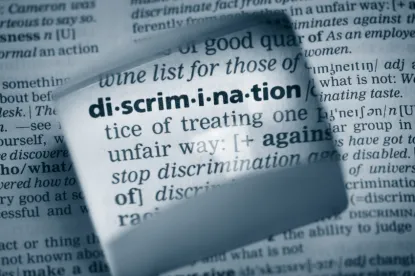The New Jersey Supreme Court addressed a novel legal issue in its recent decision, Cicchetti v. Morris County Sheriff’s Office, 2008 N.J. LEXIS 450 (2008). Specifically, the Court considered whether failing to provide requested information on an employment application bars an employee’s later claim for hostile work environment discrimination. In a decision that will likely impact future cases involving resume fraud and the after-aquired evidence defense, the Court concluded that, particularly where the information would not have automatically disqualified the employee from employment, concealing it is not grounds for dismissing the claim.
The Facts
In 1974, when plaintiff John Cicchetti was twenty-one years old, he was arrested for breaking and entering, and stealing. He pled guilty and was convicted. In 1990, he obtained a court order expunging the arrest and conviction. His attorney at that time advised him that the expungement order meant that the arrest and conviction “‘never happened’” and he was not required to disclose them in the future.
Four years later – twenty years after his arrest – Cicchetti applied for a position as a Morris County Sheriff’s Officer. A question on the employment application asked whether he had “‘ever been arrested, indicted, or convicted for any violation of the criminal law.’” Believing that his expungement order meant that he did not have to disclose his arrest and conviction, Cicchetti answered, “no.” The Sheriff’s Office hired Cicchetti.
In late 1996, the results of a routine blood test that he took while participating in a blood drive revealed that Cicchetti had Hepatitis C, a liver disease. He continued to work and perform his assigned duties, but contends that he became the target of harassment because of his disease.
Cicchetti alleges that co-workers subjected him to verbal abuse and taunting. Among other things, he claims that they referred to him as “‘Hepatitis Boy,’” warned others that he was a health risk, engaged in “exaggerated displays of cleaning or sanitizing objects he had touched or areas where he had been,” wore surgical masks and latex gloves in his presence, did not sit near him, and “openly avoided even incidental contact with him.”
Cicchetti reported the conduct to his supervisors, but it persisted and allegedly escalated. Cicchetti ultimately submitted a report detailing seventy-five incidents of what he considered to be harassment to the Equal Employment Opportunity Coordinator of the Sheriff’s Office. Nonetheless, the conduct continued. On November 14, 2000, he left work and never returned.
The Trial Court
After resigning, Cicchetti filed a lawsuit against the Sheriff’s Office and various individuals. He alleged that they had discriminated against him because of his medical condition in violation of the Law Against Discrimination, N.J.S.A. § 10:5-1, et seq. The court granted defendants’ motion for summary judgment, dismissing the case.
The court concluded that the order of expungement did not excuse Cicchetti from disclosing his conviction. It further concluded that the conviction disqualified him from employment and, as a result, he could not file employment-related lawsuits against the Sheriff’s Office. Cicchetti appealed
The Appellate Division
The Appellate Division rejected the contention that Cicchetti’s conviction barred him from employment as a Sheriff’s Officer or that concealing this information barred his lawsuit. The Appellate Division found sufficient evidence of hostile work environment and discrimination, and reversed the judgment as to the Sheriff’s Office and certain other defendants. The Supreme Court granted their petition for certification.
The Supreme Court
The Supreme Court began its analysis by considering precedent regarding “after-acquired evidence.” The Court explained that evidence of a plaintiff-employee’s wrongdoing that would have resulted in the employee’s discharge had it been discovered earlier does not bar the employee’s lawsuit for wrongful discharge, but limits his or her ability to obtain certain relief, such as front pay or reinstatement. According to the Court, barring claims entirely would undermine the deterrent purpose of anti-discrimination laws.
The Court then reviewed its prior holding that an employee “who is statutorily disqualified from obtaining public employment because of a prior conviction ordinarily may not maintain a cause of action for wrongful termination pursuant to the LAD or [the Conscientious Employee Protection Act].” The Court decided that that holding is not applicable here because Cicchetti “was not statutorily disqualified from the job with the Sheriff’s Office.”
Turning to an issue that it had not previously addressed, the Court considered “whether, and to what extent, after-acquired evidence may bar or limit damages in a workplace discrimination or hostile work environment lawsuit.” The Court recognized that Cicchetti “should have disclosed his prior conviction when he applied for this law enforcement job.” Indeed, he was required by statute to disclose it. Nonetheless, the Court found his failure to do so to be “irrelevant.” The Court observed that “[e]ven if the Sheriff’s Office would not have hired plaintiff in the first place, even if the Sheriff would have fired him upon learning of his prior conviction, plaintiff was entitled, during the period of time when he was employed, to be protected from discrimination and to serve in a workplace free from the hostility that he endured.”
The Court concluded that “if the defendant employer can bear its burden of proving that it would have terminated plaintiff as soon as it learned of this expunged conviction, then that date may be used to limit any backpay award and to eliminate any front pay award.” However, “regardless of whether defendant would have fired plaintiff upon learning of the expunged conviction, plaintiff is entitled to pursue his hostile work environment claim and to recover the full measure of his noneconomic damages including, if appropriate, a punitive award.”
The Court explained that “[f]or these claims, the public policy considerations expressed by our Legislature in our anti-discrimination statutes weigh heavily in favor of permitting plaintiff to have his day in court.”
The Court affirmed the judgment of the Appellate Division with regard to the Sheriff’s Office and remanded the case for trial.



 />i
/>i

